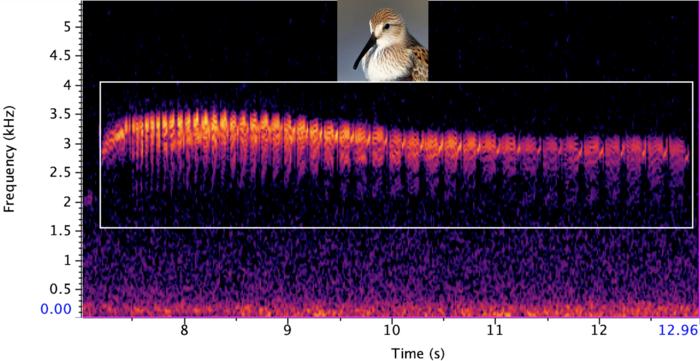Researchers have developed a new deep learning AI tool that generates life-like birdsongs to train bird identification tools, helping ecologists to monitor rare species in the wild. The findings are presented in the British Ecological Society journal, Methods in Ecology and Evolution.

Credit: Nicolas Lecomte
Researchers have developed a new deep learning AI tool that generates life-like birdsongs to train bird identification tools, helping ecologists to monitor rare species in the wild. The findings are presented in the British Ecological Society journal, Methods in Ecology and Evolution.
Identifying common bird species through their song has never been easier, with numerous phone apps and software available to both ecologists and the public. But what if the identification software has never heard a particular bird before, or only has a small sample of recordings to reference? This is a problem facing ecologists and conservationists monitoring some of the world’s rarest birds.
To overcome this problem, researchers at the University of Moncton, Canada, have developed ECOGEN, a first of its kind deep learning tool, that can generate lifelike bird sounds to enhance the samples of underrepresented species. These can then be used to train audio identification tools used in ecological monitoring, which often have disproportionately more information on common species.
The researchers found that adding artificial birdsong samples generated by ECOGEN to a birdsong identifier improved the bird song classification accuracy by 12% on average.
Dr Nicolas Lecomte, one of the lead researchers, said: “Due to significant global changes in animal populations, there is an urgent need for automated tools, such acoustic monitoring, to track shifts in biodiversity. However, the AI models used to identify species in acoustic monitoring lack comprehensive reference libraries.
“With ECOGEN, you can address this gap by creating new instances of bird sounds to support AI models. Essentially, for species with limited wild recordings, such as those that are rare, elusive, or sensitive, you can expand your sound library without further disrupting the animals or conducting additional fieldwork.”
The researchers say that creating synthetic bird songs in this way can contribute to the conservation of endangered bird species and also provide valuable insight into their vocalisations, behaviours and habitat preferences.
The ECOGEN tool has other potential applications. For instance, it could be used to help conserve extremely rare species, like the critically endangered regent honeyeaters, where young individuals are unable to learn their species’ songs because there aren’t enough adult birds to learn from.
The tool could benefit other types of animal as well. Dr Lecomte added: “While ECOGEN was developed for birds, we’re confident that it could be applied to mammals, fish (yes they can produce sounds!), insects and amphibians.”
As well as its versatility, a key advantage of the ECOGEN tool is its accessibility, due to it being open source and able to used on even basic computers.
ECOGEN works by converting real recordings of bird songs into spectrograms (visual representations of sounds) and then generating new AI images from these to increase the dataset for rare species with few recordings. These spectrograms are then converted back into audio to train bird sound identifiers. In this study the researchers used a dataset of 23,784 wild bird recordings from around the world, covering 264 species.
-ENDS-
Journal
Methods in Ecology and Evolution
DOI
10.1111/2041-210X.14239
Method of Research
Computational simulation/modeling
Subject of Research
Animals
Article Title
ECOGEN: Bird sounds generation using deep learning
Article Publication Date
15-Nov-2023




